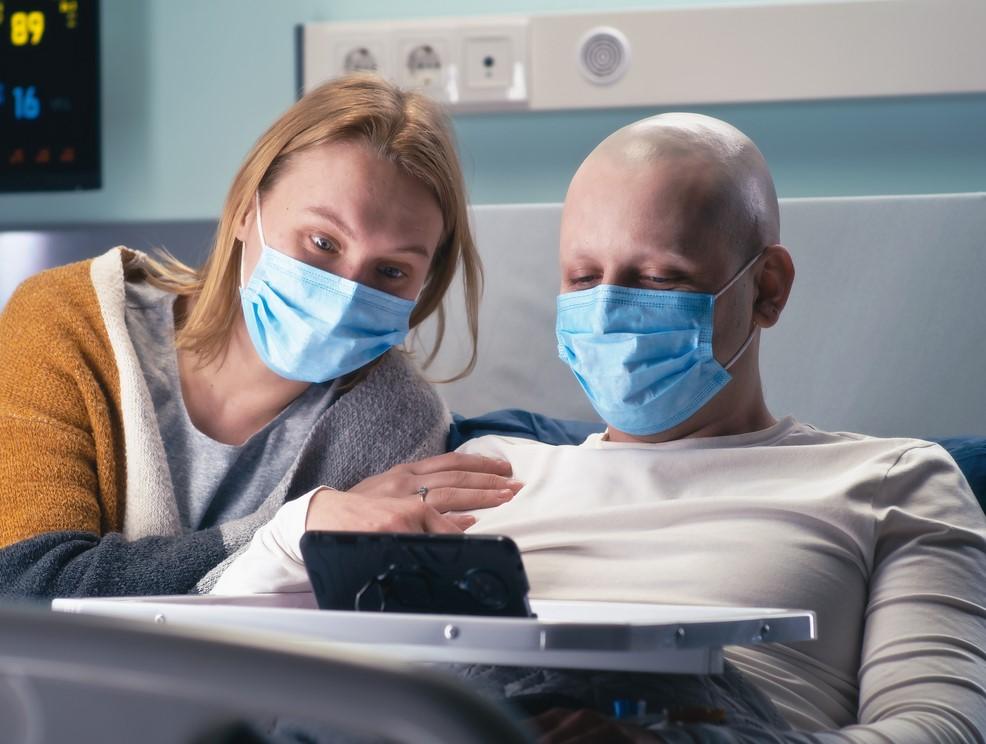Two new studies were published late last week in JAMA Oncology on COVID-19 and cancer patients, one from Israel showing good immune response to the Pfizer/BioNTech coronavirus vaccine and one from Japan finding that cancer patients were as likely as healthcare workers (HCWs) to have serum SARS-CoV-2 antibodies.
90% had immune response after 2 vaccine doses
In the first study, a team led by researchers from Beilinson Hospital in Petah Tikva, Israel, compared SARS-CoV-2 seropositivity in 102 adult patients undergoing intravenous therapy for solid tumors at a single center with 78 healthy controls from Feb 22 to Mar 15, 2021. Both groups were at least 12 days past their second dose of COVID-19 vaccine.
The study showed that 90% of cancer patients had adequate coronavirus antibodies, compared with 100% of controls. But the median immunoglobulin G (IgG) antibody concentration in the cancer patients was significantly lower than that in controls, a finding associated with a combination of chemotherapy and immunotherapy.
Median cancer patient age was 66 years, 57% were men, and the most common tumor types were gastrointestinal (28%), lung (25%), and breast (18%). Anti-cancer therapies included chemotherapy alone (29%), immunotherapy alone (22%), and a combination of chemotherapy and immunotherapy (20%).
Cancer patients are at high risk for SARS-CoV-2 infection and complications, including death, owing to both the malignancy and related therapies. However, the level and duration of immune response to mRNA vaccines such as Pfizer's in cancer patients, as well as what they mean in terms of protection against coronavirus, is undetermined.
"The cellular immune response in patients with cancer is clearly inhibited, which may underpin their reduced response to the vaccine and could leave them more susceptible than healthy controls, even with adequate antibody levels," the researchers wrote. "It could also lead to impaired durability of their protection."
And although it requires future research, the addition of a third vaccine dose after cancer patients have recovered from therapy—or perhaps a repeat of the first two doses in seronegative patients—could boost protection, they said.
The authors also suggest COVID-19 vaccination could alleviate some of the fear and stress cancer patients and their caregivers experience owing to the fear of death and stigma associated with cancer treatment, and enable cancer patients to feel safe while seeking care in medical centers or enrolling in clinical trials.
"Our findings do suggest that vaccinating such patients during anticancer treatment of any kind should be top priority," the authors concluded. "Still, until the correlation between antibody levels and protection is established, patients with cancer, like the population at large, should continue wearing masks and practicing social distancing."
Similar seroprevalence, lower IgG levels
The second study, led by researchers from the National Cancer Center Hospital in Tokyo, involved measuring SARS-CoV-2 seroprevalence in 500 cancer patients and 1,190 HCWs aged 16 and older at two centers from Aug 3 to Oct 30, 2020. The goal was to gain a clearer picture of COVID-19 transmission in cancer care settings, where HCWs are also at high risk for infection. Participants did not have a known history of SARS-CoV-infection.
Among cancer patients, 1.0% had SARS-CoV-2 antibodies, compared with 0.67% in HCWs. "Low IgG antibody levels in patients with cancer could be associated with their higher risk of SARS-CoV-2 infection compared with that of the general population," the authors wrote. "Additional studies will be needed to confirm whether there is a difference in the immune response to the virus between people with and without cancer."
But, as in the first study, IgG antibodies against the nucleocapsid and spike proteins were significantly reduced in cancer patients, with the lowest IgG nucleocapsid antibody levels in those who received chemotherapy. Cancer patients who received immune checkpoint inhibitors, though, had significantly higher levels of both nucleocapsid and spike protein IgG antibodies than those who did not receive the drugs.
"In this cross-sectional study of Japanese patients with cancer and HCWs, the seroprevalence of SARS-CoV-2 antibodies did not differ between the 2 groups; however, findings suggest that comorbid cancer and treatment with systemic therapy, including chemotherapy and immune checkpoint inhibitors, may influence the immune response to SARS-CoV-2," the researchers said.
Median cancer patient age was 62.5 years, 55.4% were male, and 97.8% had solid tumors. Among HCWs, median age was 40 years, 25.4% were male, 32.3% were nurses or assistant nurses, 15.0% were physicians, 9.5% were technicians, 4.2% were pharmacists, and the remainder were researchers or administrative workers.
Antibodies tell only part of story
In a commentary on both studies in the same journal, Lova Sun, MD, of the University of Pennsylvania at Philadelphia; Jeremy Warner, MD, of Vanderbilt University; and Ravi Parikh, MD, of the University of Pennsylvania, noted that seropositivity is an important but imperfect correlate for protection against COVID-19 and that the link between antibody concentrations and function has not been well elucidated.
"In addition, antibody titers do not fully account for protection against SARS-CoV-2, as other forms of immunity, such as SARS-CoV-2–specific memory T cells, may be protective even in seronegative patients," Sun and colleagues wrote.
They added that interpretation of continuous measures such as IgG levels is challenging. "For instance, is a statistically significant difference in IgG titer between patients with cancer and controls truly a clinically significant one, particularly given the wide range of median titer values?" they asked.
Yet Sun and colleagues said that both studies highlight the critical importance of vaccination in cancer patients. In the meantime, "several prospective studies (eg, NCT04715438, NCT04865133) are investigating the immune response to COVID-19 vaccination in patients with cancer and will yield valuable information about the safety and efficacy of vaccination as well as the duration of protective immunity in this population," they wrote.




















